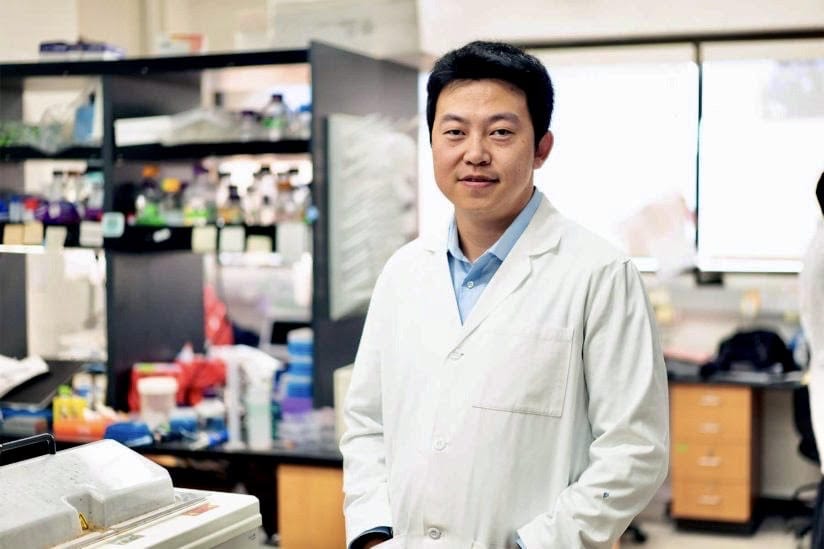Yong (Tiger) Zhang, PhD, assistant professor of pharmacology and pharmaceutical sciences, was awarded a five-year, $2.1 million National Institutes of Health (NIH) grant to reprogram exosomes for biomedical applications.
“Scientists used to think that exosomes—small vesicles secreted by cells—were just dumpsters of excreted waste,” Zhang says. “In the last 10 years, though, we’ve realized that these extracellular vesicles mediate communications between cells and organs throughout the body. This is one of the mechanisms through which cancer and other diseases metastasize to invade tissues and organs. But if diseases can be communicated in this way, why can’t we also use exosomes to reach affected areas with curative therapies? Our research is focused on developing cutting-edge technologies to transform exosomes into new therapeutics.”
“Exosomes can be reprogrammed to recognize immune cells as well as tumor cells,” Zhang continues. “We are using this technology to generate innovative, exosome-based therapeutics to both target and treat cancer. Since vesicles can carry various therapeutic cargoes, the technology could also potentially be used for neurodegenerative diseases and many other diseases.”


